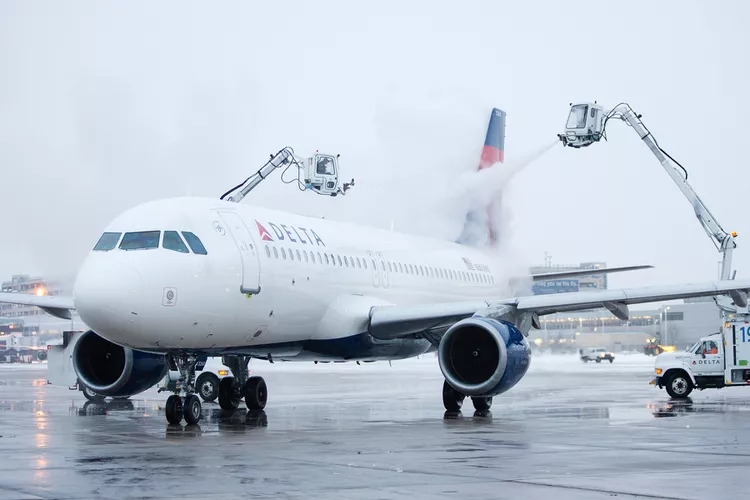Weather Update
Airlines are issuing flight waivers ahead of a “bomb cyclone” expected to slam the East Coast over the weekend, with parts of the country possibly seeing up to a foot of snow. This severe winter weather is creating concerns for travelers across various regions.
Airline Responses
Several airlines, including Delta Air Lines, have taken proactive steps by issuing travel waivers. Delta has extended this waiver to the New York City metro area and Boston. United Airlines has responded similarly, providing travel waivers for the Ohio Valley, Northeast, and Rocky Mountains, which covers a significant portion of the country. Southwest Airlines has also issued a Weekend Winter Weather advisory extending through Saturday for vast areas of the Northeast, Midwest, and South.
In addition, American Airlines has issued a winter weather travel alert for travelers in the Rocky Mountains, specifically across Colorado and Wyoming.
Storm Forecast
The impending winter storm is anticipated to begin with a rush of cold air descending from Canada into the Plains and Rockies. Snow is expected to fall as far south as Oklahoma, northern Texas, and the Ozarks starting on Friday. By Friday night, rain may transition to snow in areas of the Ohio and Tennessee valleys, reflecting the storm’s evolving nature.
As Saturday approaches, heavy snowfall is forecasted for the Appalachians and the interior Northeast. In certain locales, snowfall totals could reach a foot or more, with many regions looking at a minimum of six inches. The storm is projected to move into Canada by Sunday.
Driving Tips
The potential of low pressure along the cold front may lead to the formation of a “bomb cyclone,” which occurs when surface pressure plummets by at least 24 millibars within 24 hours. Typically, such low-pressure systems are indicative of more extreme weather patterns.
This winter storm may result in hazardous driving conditions, particularly across the Northeast. According to the National Weather Service Weather Prediction Center, the storm could lead to “severely reduced visibility” and icy roads on Sunday morning, stemming from the cold air following the front.
